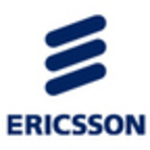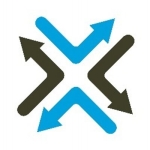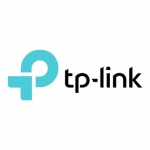What is our primary use case?
We are a tech services company and the Meraki SD-WAN is one of the solutions that I provide to my customers and have experience with.
How has it helped my organization?
One of my clients was able to optimize their traffic by having the Meraki device direct all of their branch traffic through the DIA (direct internet access), rather than through the WAN. The WAN was corporate-wide, meaning that prior to using this solution, all of the branch traffic had to be routed through there.
What is most valuable?
The most valuable feature is application performance monitoring and being able to browse packets dynamically based on priorities. For instance, I have a customer that has multiple connectivities across five different sites and they wanted to leverage SD-WAN for business and application intelligent routing. They wanted to be able to assign higher priority to packets that originate from mission-critical applications.
What needs improvement?
The port density should be improved because this solution is limited to two. We are getting more and more use cases where clients have more than two internet connections and require more than two ports. There should be three or four ports. It is possible to work around this limitation by using a layer two switch, but it does not provide the same flexibility as the statically assigned port.
The price of this solution is too high for smaller companies in Africa, where it is the enterprises that can afford it.
What do I think about the stability of the solution?
Meraki SD-WAN provides a very stable environment.
For example, when I travel out of my city, I still have remote access to my Meraki device. I can access things like my camera feed, I can see my dashboards, and I can manage users. The connection is almost always on, 24/7, with no downtime. In cases where there is downtime, it is almost always a problem with the provider and not the Meraki device.
How are customer service and technical support?
The technical support from Meraki is fantastic. I do, however, see a bit of resentment when it comes to trying to integrate Meraki with other products such as Cisco ASA or Fortinet. I can understand it because they probably don't have much experience with the products from other vendors. When it comes to supporting their own product, they do a fantastic job.
How was the initial setup?
This is a very straightforward deployment, especially compared to some of the other solutions that I have worked with.
The length of time required for deployment depends on the level of complexity and the environment. I've had some locations where it has taken three weeks, although two or three days is usually enough, once the design phase is concluded.
What's my experience with pricing, setup cost, and licensing?
Meraki solutions come with a choice of several different subscription options including one year, three years, five years, seven years, and ten years.
What other advice do I have?
Overall, this is a very good solution. I like products where you can deploy them and then go to sleep because they are watertight. It isn't going to give you headaches from support calls at 3:00 AM from a customer saying that the site is down. I definitely recommend that people look at the advantages of Meraki, and in particular, the Meraki SD-WAN because of the access to the cloud management interface.
If you ever had a problem with SD-WAN then you do not have to drive to the corporate head office or use a VPN. You can always access the dashboard from anywhere, as long as you have the required privileges on the portal.
The only complaints I have are about the port density and the pricing. They are doing a fantastic job, although there is always room for improvement.
I would rate this solution an eight out of ten.
Disclosure: My company has a business relationship with this vendor other than being a customer: Partner




















